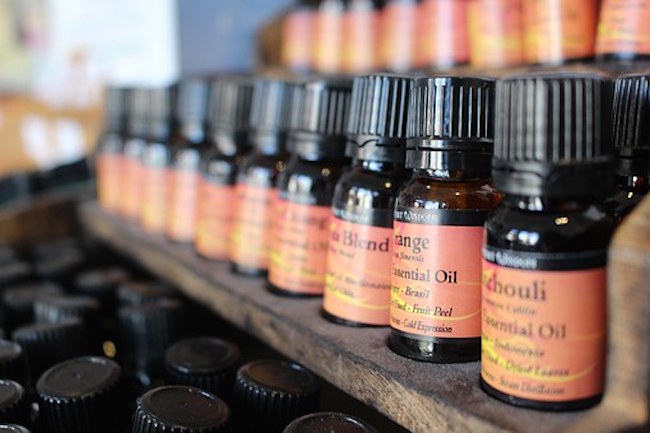Why your bug-out bag needs to contain these antibacterial essential oils by: Jose Lopez for Natural News
Bugging out means you can’t carry your whole medicine cabinet with you. You may not be able to reach a doctor who can write prescriptions for you, either. But you may already have essential oils with you that can help address infections. These are the oils you need to put in your bug-out bag. (h/t to JustPlainMarie.ca.)
Aside from being used for perfume, aromatherapy and relaxation, essential oils have health benefits as well: relief from nausea, heartburn, headaches and sleep disturbances, to name a few. They act potently against bacteria, microbes and fungi. So potent are they that you must take steps to dilute essential oils, by using carrier oils like coconut or almond oil; otherwise, you might get a severe reaction or even be poisoned by them.
10 Antibacterial essential oils you need in your bug-out bag
- Tea tree oil — Tea tree oil has been known for centuries for its healing properties. It has been used to treat fungal, viral and bacterial infections. It is used to treat ringworm, acne, minor burns and athlete’s foot. Though it doesn’t act as fast as over-the-counter or prescription medicines, it is less irritating than some of them.
- Cinnamon oil — Studies show that cinnamon oil is useful in preventing the growth of bacteria between seven and 14 days after a surgical procedure. Some consider this oil as being the strongest among the antibacterial essential oils thanks to its ability to do better with the likes of E. coli, Staphylococcus (staph), Klebsiella pneumoniae, and Pseudomonas aeruginosa.
- Chamomile oil — Roman chamomile oil can be useful in managing eczema, diaper rashes, and ear infections. German chamomile is a fantastic antiseptic and works wonders in cleaning wounds.
- Grapefruit oil — Grapefruit oil is an antimicrobial oil that is beneficial in reducing the risk for infections to cuts and wounds. According to the International Journal of Food Science and Technology, grapefruit essential oil is effective against some bacterial strains including S. aureus, E. coli, Salmonella, and Serratia marcescens.
- Lavender oil — Lavender has long had a reputation for being a soothing, relaxing essential oil that promotes tranquility. However, lavender possesses other properties that allow it to also function as a robust, antibacterial agent. Lavender improves your immunity and can help keep skin bacteria at bay that contributes to acne.
- Eucalyptus oil — Eucalyptus oil can be your best friend during upper respiratory tract infections or even bronchitis episodes. This oil stimulates the immune system which in turn can help you manage or stave off the occurrence of viruses and bacterial infections.
- Oregano oil — Oregano oil is effective against salmonella, E. coli and staph. Oregano oil can be as effective as penicillin in treating staph infections.
- Lemongrass oil — Lemongrass is an excellent antiseptic for treating wounds and decreasing the risk of a blood-borne infection. This essential oil blocks the growth of bacteria. It is a natural antiseptic and studies show that lemongrass can be potent against the likes of MRSA, a staph infection of the skin that proves to be difficult to treat.
- Thyme oil — Thyme oil may be useful against salmonella and other bacteria found in milk. It is also helpful against MRSA without the side effects that can accompany antibiotic treatment of this antibiotic-resistant skin infection.
- Bergamot oil — Bergamot has great antibacterial characteristics.




